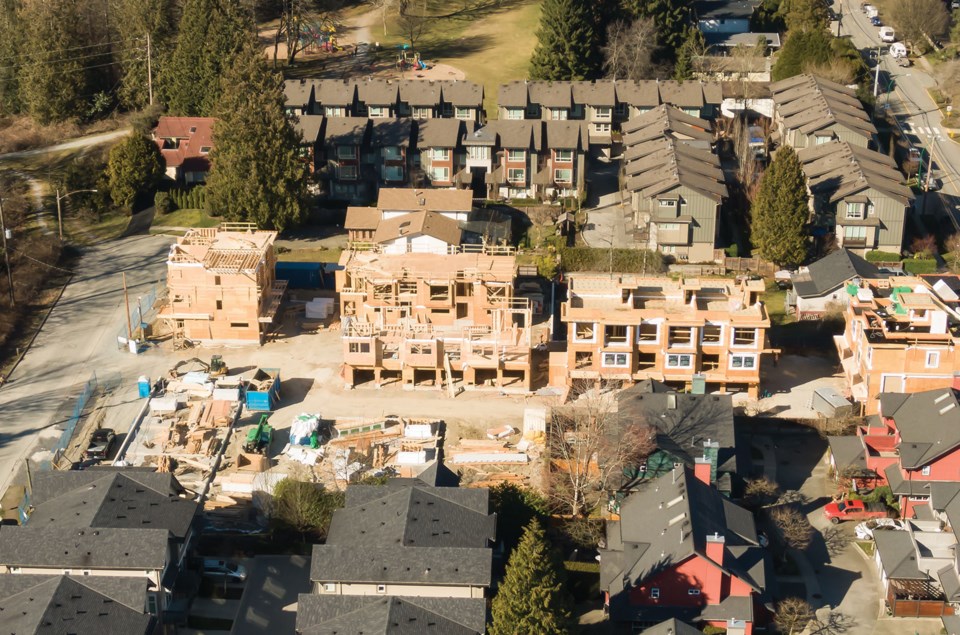Metro Vancouver’s residential real estate market had been accelerating since the recovery from the 2008 financial crisis. However, even that recession only paused the city’s price appreciation, which had been swelling for years. Data indicates that average detached-house values in Vancouver increased 95 per cent from 1999 to 2009. Since 2009, the average detached value increased by a further 140 per cent to the peak in 2017.
This equates to a 13 per cent annual increase in house prices over an eight-year period. Even with the recent house price correction, the net price increase is still about 8.5 per cent annually. Therefore, it’s no surprise the residential real estate market has experienced an overdue correction.
In addition to Vancouver being one of the world’s most desirable cities, there are other key components to a resilient real estate market:
Controlled supply. Inconsistent and bureaucratic approval processes for development permits put limitations on supply and prevent demand being fully satisfied.
Lower interest rates. Historically low rates help affordability with lower-priced debt for all buyer categories.
To date, average home prices have declined significantly in the Lower Mainland. Prices dropped more than 16 per cent since May 2018. CBC reported that approximately $89 billion in residential equity has evaporated over the past year in Greater Vancouver.
There were warning signs of an impending market correction. In late 2017 and early 2018, the Bank of Canada raised interest rates, land prices increased significantly and construction costs rose due to inflation and U.S. tariffs on building materials. In addition, all three levels of government attempted to suppress the residential market with the mortgage stress test, the foreign-homebuyer tax, a higher property transfer tax, the speculation and vacancy tax and a cap on annual rental increases.
Look to commercial
There are several positive stories that real estate investors shouldn’t overlook, however.
From 2017 to 2019, approximately 30 per cent of all real estate transactions in the region occurred in the commercial sector. In addition, the industrial market is at a record-low vacancy rate of 1.5 per cent and continues to record strong annual absorption. Finally, the office market saw a vacancy rate of 3.6 per cent with the second quarter of 2019 witnessing a positive absorption of over 260,000 square feet of office space.
Metro Vancouver companies are expanding and evolving. In previous decades, forestry, mining and financial companies were the primary drivers of office demand, but these are now being replaced by tech companies, many of which are expansions of U.S.-based firms such as Amazon, Facebook and Google. Tech tenants are driving office space demand, accounting for nearly 40 per cent of leasing or strata sales in the last quarter of 2018.
Large employment growth has accelerated demand for office space. This produced an average 16 per cent increase in downtown office rental rates from 2017 to 2019. Combined, they have caused an average increase of 15 per cent in the past year and 27 per cent during the past two years.
The opportunities
Commercial real estate continues to expand in both the industrial and office markets. The industrial market has added more than two million square feet of space and will deliver a further 5.4 million square feet over the course of 2020. The office market currently has 2.8 million square feet under construction in downtown Vancouver, with 420,000 square feet to be completed in the next year. Net rent rates have increased more than 8.5 per cent in both markets year-over-year.
There are several opportunities that may exist for investors, including:
• a “build-to-own” strategy for multi-family rental apartment buildings, which are considered by many real estate experts as the safest asset class;
• adopting a “build-to-sell” strategy for rental partment buildings in key markets, including Vancouver, where investor demand remains strong and the risk is considered low;
• the small-bay industrial strata/condo product, where demand is very strong from small-business owners who desire to own their real estate to house their company; and
• pivoting and repositioning commercial assets so owners can benefit from short-term holding income while they execute a re-purposing strategy. When evaluating “ground up” development opportunities with no holding income, it’s important to secure near-shovel-ready sites and minimize the approval process.
While investors experience a softening in Vancouver’s housing market, all is not lost in the real estate market. By diversifying real estate portfolios across commercial, industrial and multi-family residential, investors can explore new ways to create value by taking advantage of the current real estate environment. They should also remain optimistic that the city’s residential sector will emerge through this difficult period, as it has before.
Mark Hannah is Managing Director at Nicola Wealth Real Estate, a property assets management company based in Vancouver with a $3.5 billion real estate portfolio across Canada and the U.S.



